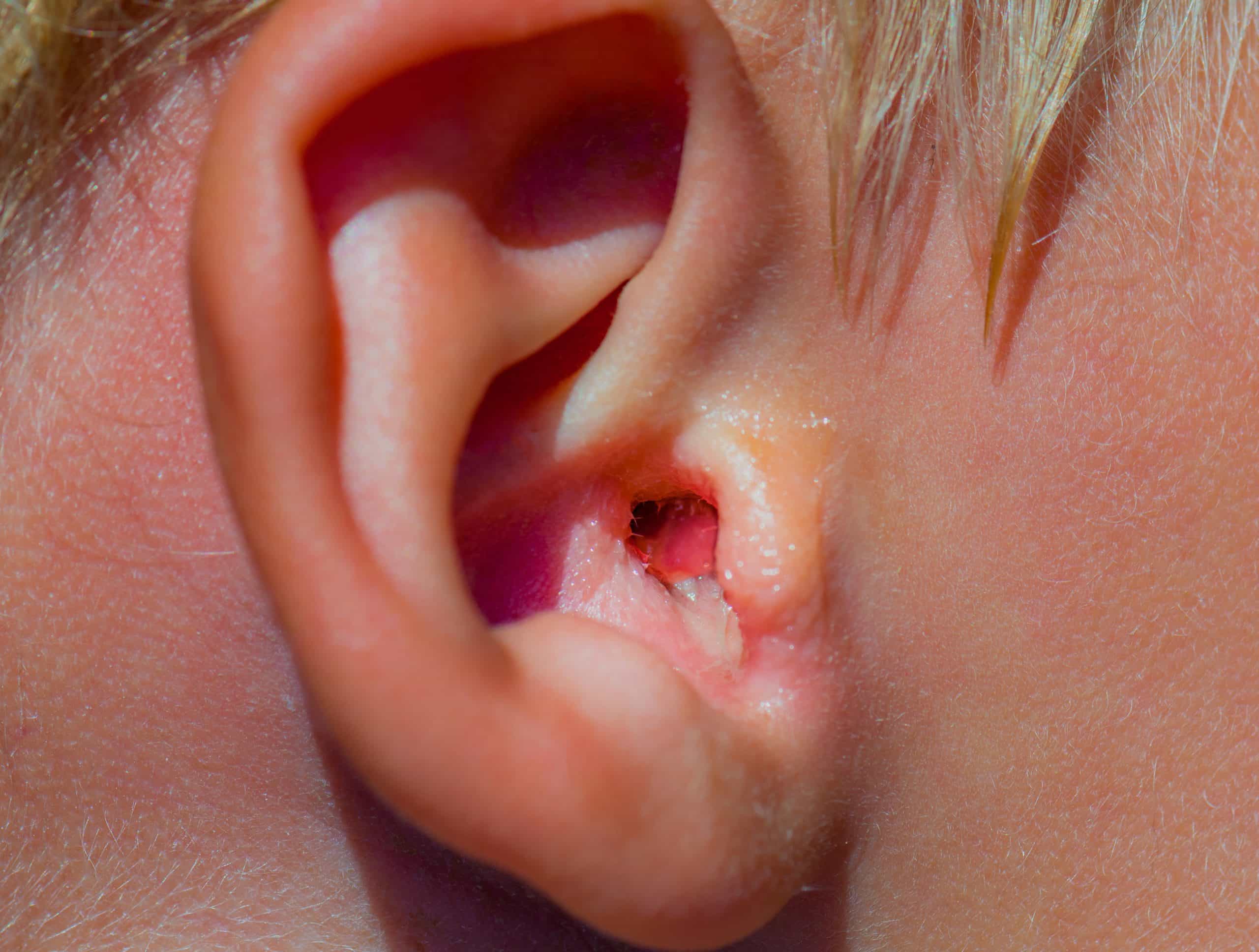
Key facts
- Swimmer’s ear is an infection of the outer ear canal — it is also known as otitis externa.
- It causes itchy, painful ears and can cause discharge in the ear.
- It is usually treated with ear drops.
- To prevent swimmer’s ear, you can use ear drops, avoid things that irritate the skin of the ear canal and ensure your ears remain as dry as possible.
Swimmer’s ear (otitis externa)
What is swimmer’s ear?
Swimmer’s ear is an infection of the skin of the outer ear canal, and is also known as otitis externa. This type of infection is very common and affects all age groups. It usually gets better quickly with treatment.
What are the symptoms of swimmer’s ear?
The symptoms of swimmer’s ear can include:
- pain in the outer part of the ear — this may range from slightly uncomfortable to severe
- pain that feel worse when you chew
- itchiness
- a squelching or popping sensation when you move your ear or jaw
- a feeling of pressure or fullness in the ear
- pain when you move your ear or jaw
- muffled hearing
The ear canal might look red and dry. You might also have a discharge, which can look clear and watery or can look like pus.

What causes swimmer’s ear?
Swimmer’s ear is usually caused by a bacterial infection, but can also be caused by fungus.
You are more likely to get swimmer’s ear if you regularly get water in your ear that doesn’t drain out. This can happen when you go swimming or wash your hair. This is because the wet ear canal softens the skin, which makes it easier to get infected.
Damage or irritation to the ear canal can also increase the risk of infection. This can happen through:
- cleaning the ear canal with a cotton bud or your finger tips
- chemicals such as shampoo or hair dye irritating the skin
- narrow ear canals
- eczema or dermatitis breaking the skin’s protective barrier
- diabetes
- middle ear infection
- wearing hearing aids
How is swimmer’s ear diagnosed?
See your doctor if you think you might have swimmer’s ear. Your doctor will ask you about your symptoms and then use a specical device called an otoscope to look inside your ear. This lets them to check your canal, and examine your ear drum to see if it is damaged or torn.
How is swimmer’s ear treated?
Your doctor will prescribe you with medicated ear drops to fight an infection and reduce any swelling of the ear canal. If possible, ask someone to put the ear drops in for you — it is easier than trying to do it yourself.
In severe cases, swimmer’s ear is treated by inserting a small sponge called a wick into the ear canal. This helps to make sure the drops get inside the ear canal.
While you are using the antibiotic ear drops, you should also:
- avoid getting your ear canal wet — check with your doctor when you can go swimming or participate in water activities
- wear a shower cap while bathing or showering
- avoid inserting anything into your ear canal, including cotton buds
- avoid scratching or touching your ear
If you have pain, try over the counter pain medicine such as paracetamol or ibuprofen. These medicines are not suitable for everyone. Speak to your healthcare professional or pharmacist before taking these medications if you are unsure.
In most cases, treatment will improve symptoms within 2 to 3 days. Most people will have few or no symptoms by the end of the first week of treatment. If your symptoms have not improved by then, see your doctor.
Can swimmer’s ear be prevented?
Ways to prevent swimmer’s ear include:
- using earplugs while swimming
- avoiding swimming in dirty water
- tilting your head after swimming to remove as much water as possible from your ear canals
- drying your ear canal with a hairdryer on low heat and at least 30 cm away from your ear canal
- not inserting cotton buds, other objects or your fingers into your ears
Ask your pharmacist to recommend using ear drops that protect your ears from getting infected from swimming or bathing. These drops are available without a prescription and are different to the drops that treat infections. They can be used after exposure to water.
When should I see my doctor?
If you have ear pain or itchiness, have discharge from your ear or experience any other symptoms of swimmer’s ear, see your doctor.
See your doctor if you notice you can’t hear well.
It is important to start treatment early so the infection doesn’t get worse or spread. If you still have symptoms after treating swimmer’s ear for one week, go back to your doctor for review.


